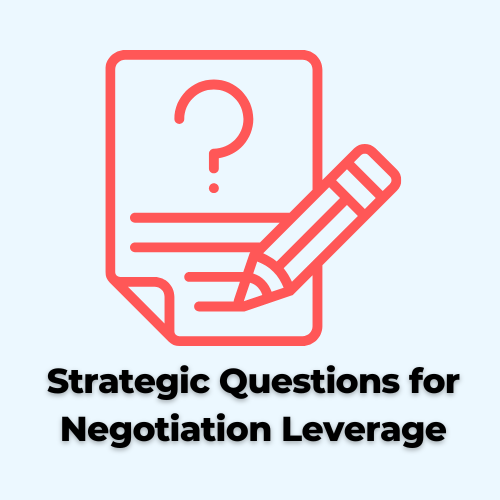How to Counter a Job Offer – Counter Offer Salary Correctly
Congrats for those who have or will be receiving a job offer! Landing a new role is no small feat and it can be a big step forward in your career. But before you sign on the dotted line you will want to ensure you don’t skip a very important step - making sure the offer is as strong as it should be. That’s where knowing how to counter a job offer correctly comes in.
This guide is here to help you avoid leaving money (or benefits) on the table. Too many career professionals accept the first job offer they receive without sending a counter offer, not realizing just how common and important salary negotiations are.
Whether this is your first time negotiating salary or you’ve been through the counter offer process before, we’ll walk you through proven strategies that have helped hundreds of professionals secure compensation packages at the top of their pay bands.
In this article, you’ll learn why it’s important to counter offer salary correctly, How to Counter a Job Offer, and biggest counter offer mistakes to avoid. That way you can walk away with a competitive offer.
Want to Negotiate an Offer? Get offer-specific guidance from a Salary Negotiation Coach. We help career professionals negotiate competitive job offers.
Or leverage our Salary Negotiation Courses and Salary Negotiation Templates.
 Job Offer Negotiation Course
Job Offer Negotiation Course
- Get our job offer negotiation strategies, templates, scripts, and guidance.
- Access our step-by-step lessons, compensation research guides, and tools.
- Access Now
 Raise Negotiation Course
Raise Negotiation Course
- Get our raise negotiation strategies, templates, scripts, and guidance.
- Access our step-by-step lessons, compensation research guides, and tools.
- Access Now
Why You Should Always Counter Offer Salary
Look, we get it – the last thing anyone wants to do after receiving a job offer is slow things down. But the truth is that negotiating your offer is the single most important step in the interview process to ensure you’re being paid competitively. Yes, it might add a few extra days to the process, but if you counter offer salary correctly the payoff can be huge over the course of your career.
Here are the three biggest reasons why countering salary matters:
The First Offer is Usually Not the Best Offer
Recruiters and employers rarely provide their best offer upfront. This isn’t necessarily to lowball candidates, but companies usually push to bring new hires in at the low to mid-point of the pay band. That means there’s usually money left on the table if you know how to counter offer salary correctly.
You’ll Never Have as Much Leverage as You Do Now
Once you sign the offer letter your negotiation leverage decreases significantly. During the hiring process, the company has already invested time, energy, and resources into bringing you on board so they want you, not another candidate. This is the moment when you have the most leverage to secure better pay and additional perks.
You’ll Earn Much More Over Your Career
Even a modest increase now will compound year after year through raises, bonuses, and retirement contributions. And if you negotiate well, you’re not just improving this job’s offer, but you’re also setting a higher baseline for every future role. Salary negotiation isn’t just about your current pay – it’s about unlocking hundreds of thousands of dollars in lifetime earnings.
How Not to Counter Offer Salary
There’s a right way and a wrong way to counter offer salary. The issue is that everyone seems to have advice about salary negotiation but most of it is either outdated or just plain wrong. Scroll through career forums, talk to a friend, or even ask a mentor, and you’ll likely hear the same generic advice repeated over and over – which could cost you the offer.
The reality is that your friend, mentor, or career coach has negotiated as many offers as us – we’re not just career coaches and instead strategic negotiation professionals. Our team has handled hundreds of real-world salary negotiations and helped clients earn millions more in compensation. That experience has shown us the difference between strategies that actually work and strategies that don’t.
Here are four of the most common bad counter offer tactics we see and why you should avoid them:
Leading With Your Experience or Why You’re Better Than Others
You’ve already proven your skills through the interview process – that’s why you got the offer in the first place. Covering your resume again at this stage won’t push the compensation higher.
Employers don’t adjust pay because you remind them of your skills and experience, they adjust because you present a strong databased counteroffer. Focus on what the role pays and not on re-selling yourself to the hiring team.
Saying “I Deserve $X”
Here’s the hard truth – pay isn’t based on how much you believe you’re worth. Companies have structured pay bands for roles and they pay within those pay ranges.
Coming across as entitled (i.e., “I deserve a base of $X”) without supporting data makes the company less likely to take you seriously. Instead, when you counter offer salary it should be based on market data for that role.
Shooting Too High and Hoping They “Split the Difference”
This one is everywhere and it’s terrible advice for any negotiation. This isn’t a car dealership and asking for an unrealistic number just to “meet in the middle” usually backfires. Best case, you’re seen as out of touch ad haven’t done your research. Worst case, they rescind the offer because you’re far off on what they can pay or seen unreasonable.
Remember, the salary negotiation is still part of the interview process – if your approach shows arrogance or lack of skills it can show traits that the hiring team may have not noticed in the interviews.
Sharing Your Current Salary or Salary Expectations
Your current or past pay has nothing to do with what the new company is willing to offer and should pay in the role. This is just a recruiter tactic to obtain data from you.
There are very specific situations where sharing expectations can work, but generally can weaken your position or jeopardize the opportunity. We go deeper into this in our Counter Offer Mistakes to Avoid section of this blog and in our Salary Negotiation Course.
How to Counter a Job Offer Correctly
As we’ve covered, there’s no shortage of bad salary negotiation advice out there. Our goal in this section is to share our proven counter offer strategies that actually work – backed by hundreds of real-world salary negotiations. These steps are built on years of experience and will show you how to counter a job offer.
There is no such thing as sending a single counter – instead it’s a step-by-step salary negotiation process to ensure you build leverage and your counter is effective. We walk you through the counter offer steps you should follow to ensure you receive competitive compensation.
While the counter offer salary steps we outline are key to success, working with a Salary Negotiation Coach or taking our Salary Negotiation Course gives you access to the full playbook – complete with counter strategies, tools, and personalized support. This guidance ensures you not only secure a stronger offer but also maintain a positive relationship with the hiring team.
Remember, how you communicate is just as important as what you ask for in a salary negotiation.
1) Understand the Compensation & Benefits in the Offer Package
The first step is NOT just asking for more money. Instead, the first step in the countering salary process is to understand each of the compensation and benefits components in the offer package.
As for compensation, this means looking beyond just your base salary and evaluating all elements that contribute to the total compensation in your offer package.
Job offers may include a wide range of compensation components, including a base salary, bonus, equity package, and a sign-on bonus. The total compensation that you might receive in an offer letter could be split across the following compensation components:
BASE SALARY
BONUS
EQUITY GRANT
SIGN-ON BONUS
EQUITY REFRESH
Those will make up your total compensation (your total monetary take-home pay) and will ensure you know what to negotiate.
The main goal here is to make sure you’re clear on your total compensation before trying to negotiate an offer. If you need help with this step then we highly recommend using our Total Compensation Tool to help layout and understand your total compensation.

- Understand Total Compensation – Use our tool to break down and calculate the compensation in your job offer.
- Research & Compare Offers – Organize your compensation research and determine the right counter amount.
- Get Here
2) Ask Strategic Questions And Complete Due Diligence On Offer Letter
Next, you’ll want to start asking strategic questions to the recruiting team to ensure you have a full understanding of the offer and benefits. This step is all about building negation leverage before you just ask for better pay. It helps by:
Gaining insights needed before a salary counter offer.
Showing the hiring team that you're evaluating the offer – that way your ask doesn’t come out of left field.
Skipping this step can make your salary counter offer less effective and not as well received. The goal here is to show the recruiting team that you're doing your research and working through the offer. It helps frame your counter for better pay as a well thought out decision and not just a blanket ask for “I want more money.”
You may think you understand all aspects of the offer package but asking for more information will strengthen your counteroffer and can lead to additional wins. Make sure you start this phase of the negotiation right after you receive your initial offer. If needed, you can use our list of Strategic Questions to Build Negotiation Leverage.

- Build Negotiation Leverage – Ask the right questions to strengthen your negotiation before sending a counter.
- Email & Phone Scripts – Get our list of questions to ask and what to say if the recruiter wants to chat through them.
- Get Here
3) Research What Compensation Should Look Like For The Role
It’s essential that you take the time to research the compensation for the role – both the base salary and total compensation range. That way you can determine the strength of your initial offer package and identify how much more you should ask for in your salary counter offer.
As we explained earlier, companies have predetermined salary ranges for each individual role – meaning your comp research must be specific to your exact level and position. You wouldn’t want to come to the table with data on a software engineer salary if your offer was actually for a product manager salary.
Sites like Glassdoor and Salary.com can be great resources for this compensation research. However, keep in mind that the salary ranges on public sites like these are often self-reported by current or former employees, so they may not reflect the most up-to-date offers for new hires. This is especially true given the changes in compensation from year to year due to the equity component (i.e., if you see high comp data on a comp site it might be due to equity appreciation and not what they typically offer a new hire).
For the most accurate data, we recommend cross-referencing pay data across multiple platforms. You can use our Total Compensation Research Comparison Tool to help you with your compensation research and identify these pay bands.

- Understand Total Compensation – Use our tool to break down and calculate the compensation in your job offer.
- Research & Compare Offers – Organize your compensation research and determine the right counter amount.
- Get Here
4) Draft & Send A Salary Counter Offer
Now that you have your compensation research in hand, you should be ready to counter offer salary.
The goal of this step is to take a data-based approach and not just reiterate what you would bring to the team – remember, the hiring team already knows the skills you bring to the table which is why you received a job offer. They also don’t care about what you think you “deserve”.
We do recommend counter offering salary via email to reduce the risk of going off topic on a call. Emailing a salary counter offer also gives the recruiter something accurate and tangible to share and review with the compensation team.
So what should you include to counter offer salary correctly? Begin by respectfully communicating how the benefits in your initial offer package differ from other companies and/or your current role offer. You should then reference the top end of the pay ranges you’ve researched for the role and that you should be paid in line with that pay.
Just remember to always approach this step professionally – this is your first chance to showcase that you’re a pleasure to work with. To ensure proper communication, use our Counter Offer Salary Drafts for examples if you need help formulating a salary counter offer.

- Proven Counteroffer Templates – Built from hundreds of successful job offer negotiations.
- Negotiate with Confidence – Remove the guesswork with our professionally crafted counteroffers.
- Get Here
5) Handle Recruiter Pushback When You Counter Offer Salary
Finally, once you’ve sent the salary counter offer you will want to prepare yourself for some pushback from the recruiter.
In most cases, the recruiting team will come back saying that they can’t make any increases or changes to the offer package. Don’t be worried if this happens as it’s a normal part of the salary counter offer process. Instead, simply respond professionally by stating you understand their constraints, but ask again if they could take your salary counter back to their comp team for one last look.
Do this even if they insist their team will just say no and follow our Objection Handling Scripts if needed.

- Overcome Recruiter Pushback – Proven scripts to handle pushback and keep your salary negotiation on track.
- Communicate Effectively – Use expert responses to get recruiters to advocate for you with the compensation team.
- Get Here
You may have to handle a few objections, but once they agree to take it back to their team, they should come back with a better offer package.
After taking your thoughts back to their team, they should return with an improved offer package. If the updated compensation package aligns with your goals and the base salary and TC bands you researched, then you should be ready to send over our Offer Acceptance Email to document it and lock it in!

- Accept or Decline – Expert crafted job offer acceptance email and rejection email templates to share your decision.
- Professional & Genuine Tone – These help you communicate in a professional manner regardless of what you decide.
- Get Here
Counter Offer Mistakes to Avoid
As we mentioned earlier, there's a lot of bad advice out there from career coaches and ex-recruiters who haven’t actually managed hundreds of salary negotiations. Our goal is to help you cut through that noise and navigate a salary negotiation the right way.
We’ve outlined the most common mistakes to avoid when learning how to counter a job offer below. While these tips are valuable and will help you, we still recommend working with a Salary Negotiation Coach or taking our Job Offer Negotiation Course to ensure you steer clear of counter offer salary mistakes.
Don’t Share Salary Expectations or Current Salary
The recruiting team knows exactly how much they can pay for their roles and by telling them your salary expectations it is not going to guarantee a certain outcome. That’s a fact so don’t think you’re negotiating when sharing salary expectations.
For example, if you share a lower salary expectation with the recruiter than what they could offer, they will then be motivated to offer you that lower compensation or down level you (yes, down-level – very common at tech companies). On the other hand, if you answer with a number higher than what they are able to realistically offer, they could become disinterested and decide to go with a different candidate.
Sharing your salary expectations before you have a offer in hand makes it more difficult to receive a competitive compensation package in almost all cases – whether you share these details verbally or on job applications.
However, you should prepare yourself for pressure from the recruiting team because they will ask this and there is a right and wrong way to respond. We provide our Salary Expectation Responses for you to use so you can overcome their tactics and hopefully secure a competitive initial offer.

- Salary Expectation Responses – Scripts to overcome recruiter salary expectation discussions and pre offer calls.
- Avoid Lowballing Yourself – These call scripts and email templates will help you get a competitive offer.
- Get Here
Be Realistic When Sending A Salary Counter Offer
It’s easy to jeopardize a relationship with the hiring team by coming off as too aggressive, so make sure that you don’t push for unreasonable compensation.
You don’t want to push for compensation that is unrealistic and they cannot offer for your specific role. That’s why it’s so important to take the time to understand each element of your compensation package and research both the base salary and total compensation range for your specific role. With the right data and insights, you should be able to come up with an appropriate and effective salary negotiation counteroffer that doesn’t jeopardize the opportunity.
Don't Be Afraid to Counter Offer Salary
The worst mistake you could make? Not negotiating an offer letter at all.
Negotiating an offer letter after the interview process can feel incredibly intimidating, especially if you’ve never done it before. But in reality, it doesn’t need to be a stressful process. You’re not going to lose an opportunity just because of an attempted salary negotiation. We’ve helped facilitate hundreds of successful salary negotiations and we’ve never seen a company take back a job offer because a candidate tried to negotiate by following our strategies.
Regardless of the role or level, you should counter offer salary. Don’t ever let salary negotiation fears keep you from advocating for competitive compensation. There are plenty of resources to help you in this process.
Salary Negotiation Coaching & Tools
Increasing compensation requires a deep understanding of a company’s compensation philosophy and the right salary negotiation strategy. Our expert Salary Negotiation Coaching or Courses and Templates will help you navigate the salary negotiation process and secure competitive pay.
Or leverage our Salary Negotiation Courses and Salary Negotiation Scripts.
 Job Offer Negotiation Course
Job Offer Negotiation Course
- Get our job offer negotiation strategies, templates, scripts, and guidance.
- Access our step-by-step lessons, compensation research guides, and tools.
- Access Now
 Raise Negotiation Course
Raise Negotiation Course
- Get our raise negotiation strategies, templates, scripts, and guidance.
- Access our step-by-step lessons, compensation research guides, and tools.
- Access Now


